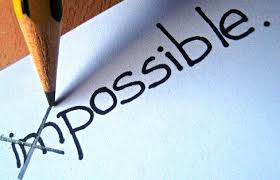If you read my recent post about Values-Based Living, you may like to start this activity by thinking about the values you have identified as being important to you, and that you feel you could be living or expressing more fully in some way. What are your intentions for each of these values? How can you start setting goals for each of these?
Before I share a goal setting framework with you, here are some important lessons I have learned from elite athletes I have worked with in my Sport Psychology role:
• Having a strong sense of self-determination and volition towards your goals is imperative. The most motivating goals will be those that are set by you, that relate to your values, and are moderately difficult.
• It is most effective to focus on process goals and not outcome goals. For example, although many athletes strive to “win” and “be the best”, focusing on this end result does not offer any pathway towards the realisation of these goals. Outcome goals encourage a future-focus and disregard the importance of the present moment. In comparison, process goals provide the road map for what actions and habits an athlete can engage in right now to work towards the end result. Process goals break down these over-arching goals into actionable steps that are realistic. Process goals are also more empowering as they make it easier to track progress, measure, and accomplish.
• Not naming any names, but I can tell you of one elite athlete who used to write his goals and goal plans on paper, stick the paper under his pillow each night, and then read them first thing when he woke up each morning.
• Every athlete I have worked with writes their goals down rather than just thinking of them in their heads. This is powerful because it creates a psychological commitment to the goals as well as a visual reminder of what you are aiming for.
Before you start setting goals, have a read through this framework below to assist you.
GOALS should be:
Getting you somewhere specific and be positively phrased;
Owned by you and linked to your personal values;
Action-oriented with small behavioural steps in place;
Limited by a practical time frame;
Sustainable – are they realistic given the barriers and resources available to you?
Here are some pointers to reflect on to get you started…
G = Getting you somewhere
If you were to enhance this value in your life, where can you see it taking you? What improvements would you notice about yourself, your health, emotions, psychology, spirituality, relationships, work or general functioning? Why is this important to you?
Then think of one goal you could work on first, and ensure you positively state this goal: “I want to…” or “I will…” rather than “I need to stop doing…”. Be as specific as possible about what it is you want to achieve. For example, if one of the things you value is your health, and your intention is to increase your levels of energy throughout the day, instead of saying “I need to stop eating processed foods”, you could say “I want to eat more vegetables; specifically I will include 2 serves of vegetables in each of my three main meals each day.”
O = Owned by you
Reflect on whether this intention is personal, meaningful and in your own best interests. Is this something you really want to achieve, or do you feel like it is somebody else’s agenda that is pushing you towards this goal? Think about whether the driving force behind this intention is more of a ‘pulling towards’ feel or a ‘pushing to’ feel. Is the goal a realistic step that can be achieved, and an idea not set for me by other people?
A = Action-oriented
Here, determine “what steps do I need to take to reach my goal?” Ensure your goal is defined in terms of behaviour, that is, something you can do and can clearly recognise when you’ve accomplished it. It is important to set a goal that can be measured in some way, so that you can progress towards its accomplishment. With the example above, you can clearly measure whether you have reached your intention of 2 serves of vegetables with every meal eaten. It would also be wise to break this down into smaller steps. For example, the first step for this goal may be to obtain information about what constitutes a serve of vegetables. It may also be important to research recipes that contain lots of vegetables to get you started, and to set aside a day to shop at the farmer’s market. Breaking the goal down into small, achievable steps can provide us with a sense of progress and increases the chances of success. I like to break my goals into monthly, weekly, and daily “to-do” lists.
L = Limited by a practical time frame
When would you ideally like to achieve this goal by? At what time points will you monitor, review and modify your goal plan to make sure it is still working for you, and more importantly, still relevant for you? This helps to identify and address “trouble spots” in achieving the goal.
S = Sustainable
Given the resources available to you (time, money, social support, information), and the barriers that are likely to arise (for example, being away for work, having social “eating” events like birthdays, and a lack of time), is this goal realistic and sustainable for you right now? What are the barriers (internal excuses and external pressures) that may arise? What can I do to work through these issues?
Remember, without a goal plan, setting an intention is just like making a wish!


Pingback: Boosting Happiness | psyched4success